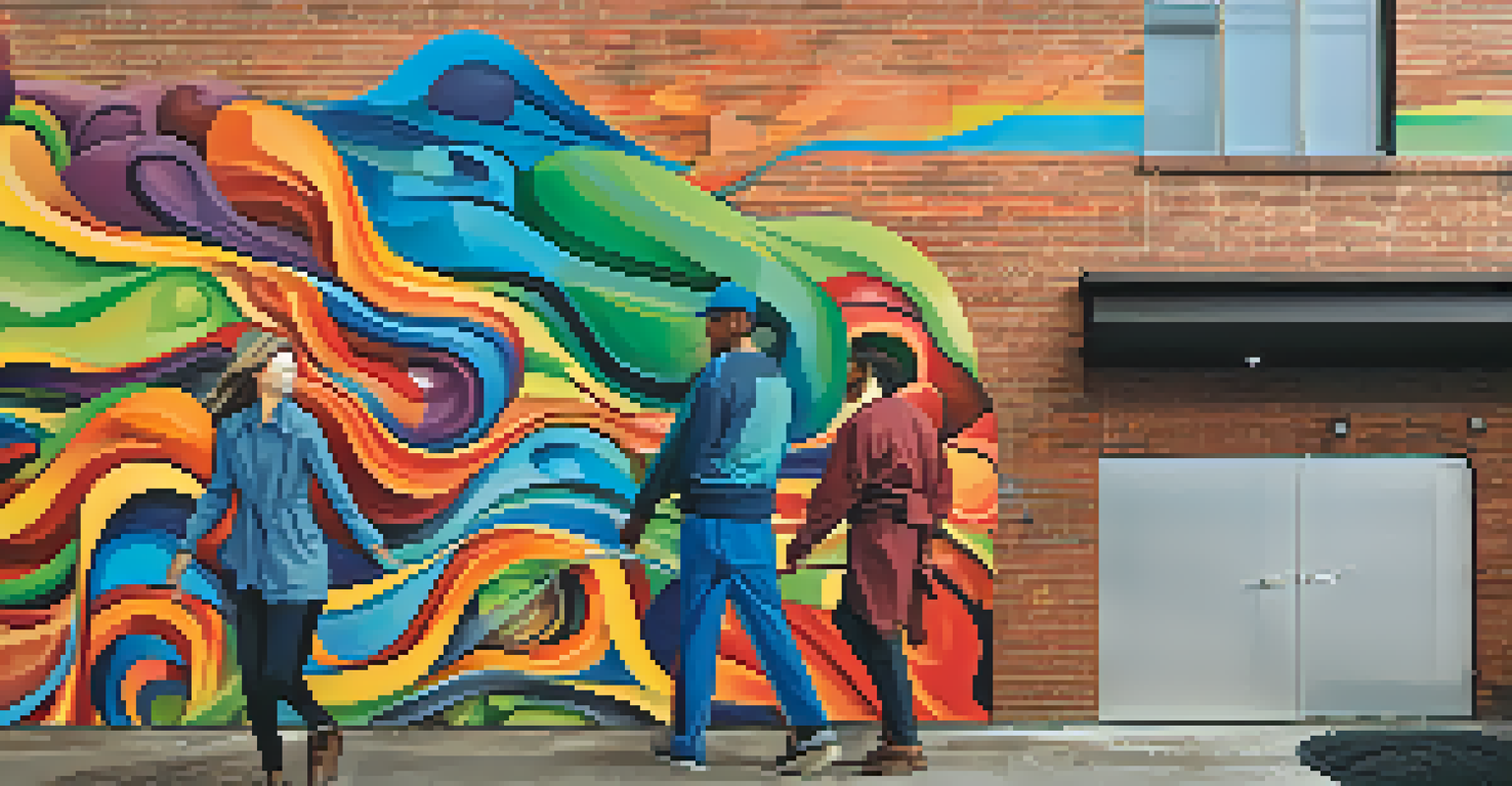Can Hallucinogens Promote Empathy in Social Interactions?

Understanding Hallucinogens and Their Effects
Hallucinogens, such as LSD and psilocybin, are substances that can alter perception, mood, and cognitive processes. These changes often lead to profound shifts in how individuals experience their surroundings and connect with others. By temporarily changing brain function, these substances can create a unique lens through which users perceive social interactions.
The experience of altered states can allow individuals to step outside their normal thought patterns and feel more deeply for those around them.
Many people report heightened emotional responses and a greater sense of connection with others after using hallucinogens. This phenomenon raises intriguing questions about their potential role in enhancing empathy. Essentially, the experience of altered states can allow individuals to step outside their normal thought patterns and feel more deeply for those around them.
Research into the neuroscience of empathy suggests that hallucinogens may influence the brain's default mode network, which is associated with self-referential thought. By disrupting typical patterns of thinking, these substances could encourage individuals to view situations from multiple perspectives, thereby fostering a more empathetic outlook.
The Science Behind Empathy and Hallucinogens
Empathy, the ability to understand and share the feelings of others, is a complex interplay of emotional and cognitive processes. Studies indicate that hallucinogens can enhance these processes by promoting emotional openness and reducing social anxiety. This combination may allow individuals to engage more authentically with others.

In clinical settings, researchers have observed that substances like MDMA can significantly increase feelings of closeness and trust among participants. When individuals feel safe and connected, they may be more likely to engage in meaningful conversations and truly listen to one another. This sense of safety is crucial for fostering empathetic interactions.
Hallucinogens Enhance Empathy
Substances like LSD and psilocybin can alter perception and promote emotional openness, leading to deeper connections with others.
Additionally, hallucinogens may encourage introspection, allowing users to reflect on their own emotions and experiences. This self-reflection can lead to a deeper understanding of how one's actions affect others, ultimately promoting a more empathetic approach in social situations.
Personal Anecdotes: Real-Life Experiences
Many users of hallucinogens share powerful anecdotes about their experiences with empathy. For instance, someone might recount how a psychedelic experience helped them reconcile a strained relationship by fostering a new understanding of the other person's perspective. These stories often highlight the transformative power of altered states of consciousness.
Empathy is about finding echoes of another person in yourself.
Such personal narratives are compelling because they illustrate the profound emotional connections that can occur during these experiences. Individuals often report feeling a sense of unity with others, as if they can truly feel what others are feeling. This deep connection can create lasting shifts in how they relate to those around them.
While these anecdotes are subjective, they provide insight into the potential of hallucinogens to enhance empathy. They serve as reminders of the complexity of human emotions and the ways in which altered states can open doors to deeper understanding.
Potential Therapeutic Applications
The therapeutic community is increasingly interested in how hallucinogens might be used to treat conditions like PTSD and depression, where empathy plays a crucial role. By fostering stronger emotional connections, these substances may help individuals heal from trauma by allowing them to process their experiences more effectively. This approach emphasizes the importance of empathy in emotional recovery.
Clinical trials have shown promising results, indicating that substances like psilocybin can lead to significant improvements in patients' emotional well-being. By enhancing empathy, these treatments can help individuals build stronger relationships with therapists and loved ones, creating a support system that is vital for healing.
Therapeutic Potential Explored
Research indicates that hallucinogens may aid in treating conditions like PTSD and depression by fostering empathy and emotional healing.
However, it's essential to approach these treatments with caution. While the potential benefits are significant, ongoing research is needed to understand the long-term effects and the best therapeutic practices. The goal is to harness the empathetic benefits of hallucinogens while minimizing risks.
Cultural Perspectives on Hallucinogens and Empathy
Throughout history, various cultures have utilized hallucinogens in rituals and healing practices. These traditions often emphasize connection—both with others and with the natural world. By viewing hallucinogens through this cultural lens, we can appreciate their role in fostering empathy and community.
In indigenous cultures, for instance, the use of substances like peyote is often linked to communal rites of passage and spiritual connection. These experiences can create a shared sense of understanding among participants, reinforcing social bonds and empathy. This highlights the potential for hallucinogens to not only enhance individual experiences but also to strengthen community ties.
Understanding these cultural practices can inform contemporary discussions about the therapeutic use of hallucinogens. By respecting and incorporating these traditions, modern approaches can create a more holistic understanding of empathy and connection, enriching our overall perspective.
Limitations and Risks of Hallucinogen Use
While the potential of hallucinogens to enhance empathy is exciting, it's crucial to recognize the limitations and risks associated with their use. Not everyone reacts the same way to these substances; experiences can vary widely based on individual psychology and environmental factors. For some, hallucinogens can induce anxiety or paranoia, which may hinder empathetic connections.
Additionally, there is the risk of dependency or misuse. People may turn to these substances as a crutch rather than developing healthier coping mechanisms or emotional skills. This underscores the importance of approaching hallucinogens with a sense of responsibility and awareness of one's own mental health.
Cultural Context Matters
Historical and cultural practices surrounding hallucinogen use highlight their role in enhancing community bonds and shared understanding.
Ultimately, while hallucinogens may offer unique opportunities for enhancing empathy, they should not be seen as a panacea. It's essential to combine any use of these substances with therapeutic support and guidance to maximize their benefits while minimizing risks.
Conclusion: A Complex Relationship
The relationship between hallucinogens and empathy is undoubtedly complex. While there is promising evidence to suggest that these substances can enhance emotional connections, individual experiences vary widely, and risks remain. This complexity invites further exploration and discussion about how we can safely harness the potential benefits of hallucinogens.
As research continues to unfold, we may discover more about the intricacies of human empathy and how hallucinogens can play a role in fostering deeper connections. The key is to approach this topic with an open mind and a commitment to understanding the nuances of both the science and the lived experiences of individuals.

In the end, the dialogue surrounding hallucinogens and empathy invites us to consider not only the potential benefits but also the broader implications for mental health and social connection. By fostering a culture of empathy, whether through traditional practices or modern therapeutic approaches, we can work towards more compassionate communities.